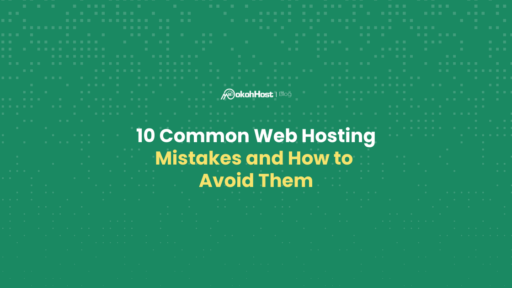Improve website speed for SEO to enhance search rankings, boost user experience, and drive more organic traffic to your site. Website speed is crucial for user experience and search engine rankings. It allows you to get better SEO rankings. A slow-loading site can deter potential customers, raise bounce rates, and harm your SEO efforts.
While website speed is essential to search engine optimization (SEO), it’s not the only factor. SEO involves optimizing content and the overall website experience to align with how search engines like Google and Bing assess and rank pages. The primary goal of SEO is to achieve the highest possible rankings in search results, attracting more visitors to the site.
This guide explores improving your website’s loading speed for better SEO rankings.
What is Website Speed?
Website speed refers to the time it takes for a website to load its content. The faster your content loads, the higher your website speed. Google prioritizes websites that load quickly (within 1 or 2 seconds) and are responsive.
This factor can significantly influence user experience, search engine rankings, and overall website performance. Faster-loading websites generally offer a better user experience, resulting in higher user satisfaction and increased engagement.
Website loading speed is crucial for user satisfaction and affects your site’s SEO ranking and conversion rates. A fast-loading website gives you a competitive edge and can significantly enhance your overall performance.
You Might Find This Helpful
Why Website Speed Matters for SEO
When search engines have to choose between multiple high-quality pieces of content, user experience factors such as site speed help determine which page ranks higher.
The significance of page speed becomes evident when you realize that just a few milliseconds can be the difference between securing the top spot.
Google now considers website speed a ranking factor for desktop and mobile searches. A slow website hurts user experience and can lower your search rankings, making it harder for customers to find you. Faster websites are more likely to rank higher in search results.
To improve website speed for SEO, website owners should prioritize optimizing images, reducing server response times, and leveraging browser caching. A well-optimized site meets Google’s Core Web Vitals, enhances visibility, and attracts more organic traffic.
Here are some reasons why website speed matters for SEO:
Enhanced User Experience
People don’t like waiting, primarily online. Studies show that users expect websites to load in under three seconds. If your site takes longer, visitors are more likely to leave, which can lead to a higher bounce rate and hurt your SEO.
Minimized Bounce Rate
A fast-loading website keeps users engaged and lowers bounce rates. Conversely, visitors will exit if your site takes too long to load, and high bounce rates can harm your rankings.
Mobile-Based Ranking
Google’s mobile-first indexing prioritizes your site’s mobile version for ranking. Since mobile connections are often slower than desktop ones, optimizing for speed enhances the mobile experience and boosts your SEO.
What is SEO?
SEO, or search engine optimization, refers to improving your website’s content and technical structure to help search engines like Google crawl, index, and understand your pages. This ultimately boosts your rankings in search results.
SEO involves enhancing a business’s website content, structure, and overall online presence to boost its organic visibility in search engine results pages (SERPs). It helps search engines interpret your content and assists users in finding your site so they can decide whether to visit based on search engine results.
Why SEO is Important to Improve Website Speed
SEO delivers tangible business outcomes for brands, companies, and organizations of all sizes. It is essential for improving website performance and speed because searching or using search engines has become an instinctive action for internet users globally. Below are the key reasons SEO is crucial for improved performance and website speed.
Increased Visibility and Rankings
SEO helps your site rank higher in search results, making it more visible to users. More visibility leads to more clicks, as users typically choose one of the top results.
Web Traffic
SEO aims to increase the number of visitors to your website. By improving your site, you attract more organic traffic, which drives engagement and conversions.
Trust and Credibility
Sites that rank higher in search results are seen as more trustworthy. Being at the top signals to users that your site is credible, helping to build trust and authority.
Better User Experience
SEO also focuses on improving the user experience. A well-optimized site loads faster, works well on mobile, and offers relevant, quality content, encouraging visitors to stay longer and engage.
Cost-Effectiveness
SEO is more affordable than paid ads. While it requires investment in content and optimization, the long-term benefits of organic traffic often outweigh the initial costs, as your site continues to attract visitors without extra spending.
SEO as an Organic Marketing Strategy
SEO is a cost-free marketing approach that optimizes content and user experience to drive traffic. Unlike digital ads, which stop generating results once payments cease, SEO efforts provide long-term benefits by continuously attracting visitors without ongoing costs.
How to Optimize Website Speed for Better SEO Performance
Website speed plays a crucial role in organic SEO performance. Users expect to access information quickly and effortlessly when searching online, and a slow-loading page can lead to a poor user experience and lower search rankings.
So, how can you enhance your website’s loading speed? Let’s explore some of the most effective strategies to optimize performance and improve website speed for SEO.
Optimize Your Images
Large image files can slow down your website, negatively impacting user experience and SEO rankings. To optimize your images and improve loading speed, resize and compress them using tools like TinyPNG or ImageOptim to reduce file size without compromising quality. Optimizing your images will help improve website speed for SEO.
Choose the correct format: JPEG for photos, PNG for transparent graphics, or WebP for better compression and quality. Additionally, implement lazy loading so images load only when needed as users scroll, reducing initial load time and enhancing overall performance. These optimizations help create a faster, more efficient website, improving user experience and search engine rankings.
Enable Caching & Content Delivery Networks (CDN)
A Content Delivery Network (CDN) is a distributed server system that stores copies of your website’s static content. A good CDN can improve website speed for SEO. When a user accesses your site, the CDN delivers the content from the nearest server, reducing data travel distance and improving loading speed.
Implementing caching and content delivery networks (CDNs) can significantly enhance page loading speed by delivering cached versions of your website from multiple global locations, ensuring faster access for visitors. Additionally, CDNs help minimize bandwidth usage by serving stored copies of pages rather than fetching them from the server each time a user visits.
Optimize Your Code to Improve Website Speed for SEO
The code behind your website, including HTML, CSS, and JavaScript, can also impact loading times. Bulky or inefficient code increases file sizes, slowing down page rendering. Optimize your website’s code to improve load speeds by minifying HTML, CSS, and JavaScript files and removing unnecessary tags and attributes. If you’re uncomfortable doing this manually, many online tools and services can handle it automatically.
Minimize Redirects
Redirects are sometimes needed for websites with multiple pages, but they can slow down loading times if mishandled. To reduce redirects, ensure all internal links go straight to their destination URLs, avoiding unnecessary redirects. Also, limit external redirects by not linking to URLs that automatically redirect users.
Enable Browser Caching
Enabling browser caching on your website can significantly speed up page loading times. It stores some aspects of web pages in the browser’s memory, allowing these elements to load faster instead of being re-downloaded each time a user visits your site. This means repeat visitors won’t need to download the same elements again, saving time and improving load speeds.
Website speed plays a crucial role in organic SEO performance. Users expect websites to load quickly to find what they need without delays easily. Optimizing images, minifying scripts and stylesheets, and enabling browser caching can improve page load times and enhance SEO rankings.
Choose the Right Web Hosting Provider
The choice of web hosting provider significantly impacts your website’s speed. Shared hosting can be slower since multiple websites share the same server resources. For improved performance, consider upgrading to more robust hosting options, such as VPS (Virtual Private Server) or dedicated hosting, which offer better resources and faster load times. MokohHost provides these services and offers blazing-fast speeds.

Optimize Server Response Time
Server response time refers to how quickly the web server processes and responds to page requests. To reduce delays, improve your server setup, minimize the use of plugins, and select a reliable hosting provider like MokohHost, which offers optimized server infrastructure for faster response times.
How Can I Measure Website Speed?
There are various tools, both free and paid, that can help you evaluate your website’s speed and pinpoint areas for improvement. While they all measure the same metrics, their user interface differs. Let’s explore a few of them to see what each offers.
To measure your website’s page speed, you can use online tools designed explicitly for this task. These tools evaluate your website’s performance and offer insights into its loading speed. Well-known options include Google PageSpeed Insights, GTmetrix, and Pingdom.
Entering your website’s URL into one of these tools will generate a report detailing loading times, performance metrics, and improvement suggestions. Regularly testing your website’s speed is crucial for enhancing user experience, maintaining fast load times, and boosting your site’s overall performance.
Conclusion
To ensure your website runs optimally, consider seeking the services of a reliable web hosting provider. Enhancing a webpage’s load time is essential for improving SEO and providing a better user experience.
At MokohHost, we ensure our clients’ websites are fast and SEO-friendly by optimizing image sizes, leveraging browser caching, and writing clean, efficient code. We prioritize responsive design and provide high-performance hosting to enhance speed, user experience, and search engine rankings.






